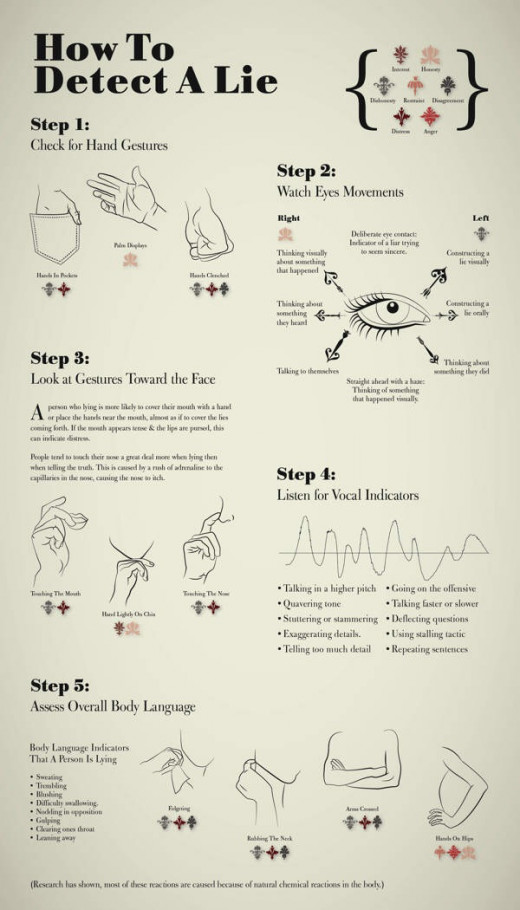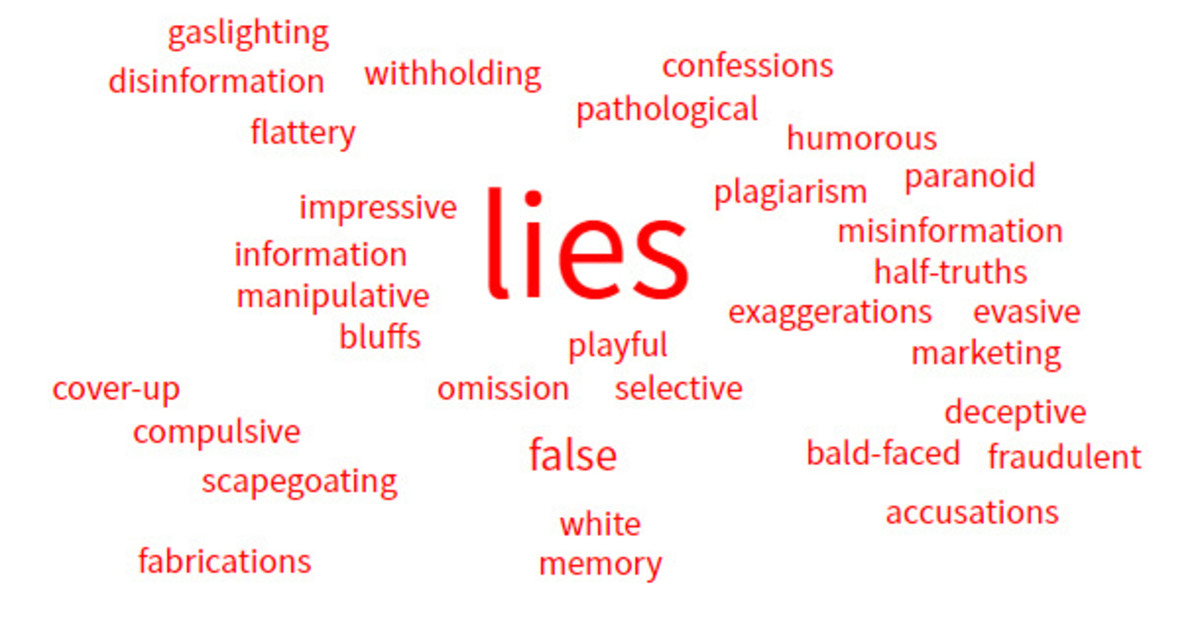Lie Detection at Work

We all lie. Some people lie more than others, but a penchant for the skill is something we learn at a young age: One of the first skills a child learns mimicking the expressions of others during the first two years of life. Lying is so natural, that we often have a problem deceiving ourselves, due to the various complexities.
“I swear to tell the truth, the whole truth, and nothing but the truth.”
If you have ever testified under oath in a U.S. court of law then you are familiar with the three types of lies:
- Commission: intentional deceit via untrue statement or “not telling the truth.”
- Omission: leaving out pertinent information or “not telling the whole truth.”
- Influence: persuasive banter spoken to shift attention away from deceptive information or “nothing but the truth.”
In the book “Spy the Lie,” author Eric Johnson teaches readers how to take steps to spot lies and liars by entering L-squared mode: a heightened state of observation, which when mastered makes identifying deceitful behavior in clusters a possibility. This is accomplished by examining a series of scenario’s where probing questions corner and expose liars. Subsequently, establishing a lie detection methodology, that is supported by scientific evidence.
What type of lie's do you tell in the workplace?
What does deception look like?
- Nodding “Yes” while saying, “No.”
- Grooming while being questioned is generally a nervous tell.
- Big swallows or throat clearing: lying can make us anxious and anxiety can lead to dry mouth.
- Hiding mouth and eyes, tends to be a subconscious reaction to fear of being detected. Our fight or flight response can cause blood to rush from our face causing itchiness and/or mild discomfort.
A few examples of Lie detection techniques are as follows:
- Avoid asking negative questions, which put people on the defensive.
- Broaden your focus and ask non-confrontational questions to force the party being questioned to provide more information. If the individual is being dishonest then this technique will make it more difficult for them to remember the lie.
- Ask an individual to tell you what happened on the day in question in reverse. When we are making up a story it is difficult to recall a chain of events unrehearsed in reverse, unlike when we are pulling from our memories of an experience.
- Ask the suspicious person how they think the guilty party should be punished, because guilty people know they are sentencing themselves. People generally go extra light on a suggested punishment when it is for a wrong that they have committed.

Why is Lie Detection Important?
Acquiring the ability to detect lies has several negative consequences. Lying is natural for many people, and consequently; detection can lead to situational judgment causing lasting harm to existing relationships, bad first impressions and an assortment of other negative consequences. Nevertheless, I believe the benefits of lie detection out-weigh the negative consequences, and that learning how to properly detect lies can have a dramatic impact on your personal and professional relationships. Some of the professional benefits of lie detection are as follows:
1 Advantage in Sales Meetings
2 Loss Prevention
3 Hiring & Promotion
4 Personal Accountability
Advantage in Sales Meeting
The old cliché, “You are either selling or being sold,” holds true in most business meetings. Thus, the individual who can spot deception in the board room – places his company and his professional interest at an advantage. Safeguarding self from unscrupulous business practices.
Loss Prevention
Most product based company’s budget for loss prevention or at least they should. Mismanagement of this controllable metric can be the undoing of a strong company by negating earned profits. Business Leaders who are capable of spying lies are more likely to identify problem areas and eliminate loss leaders.
Hiring & Promotion
Studies have shown that over 90% of people lie or offer misleading statements in interviews. Hiring managers who can spot untruths in interviews are more likely to right-fit applicants and promote agile leaders whose style will enhance existing teams.
Personal Accountability
The biggest mistake a leader can make is lying to the face staring them in the mirror. Here is a list of three common lies that people tell themselves:
1 Credentials make the man/woman. We have a tendency to wear our academic and professional accomplishments on our sleeves as a badge of honor, but when we get down to the brass tacks – people will always focus on your most recent performance and attitude for better and worse.
2 That will never happen to me. Chaos theory teaches us that seemingly random events are actually predictable and that for the most part, what can happen – will happen. Given enough space and opportunity in our personal and professional lives.
3 I will get around to that when things are perfect. Things will never be perfect and leaders who wait for the perfect opportunity to start a new project, promote a worthy subordinate, or expand – will always find themselves behind the eight ball and trying to catch up to the competition.








